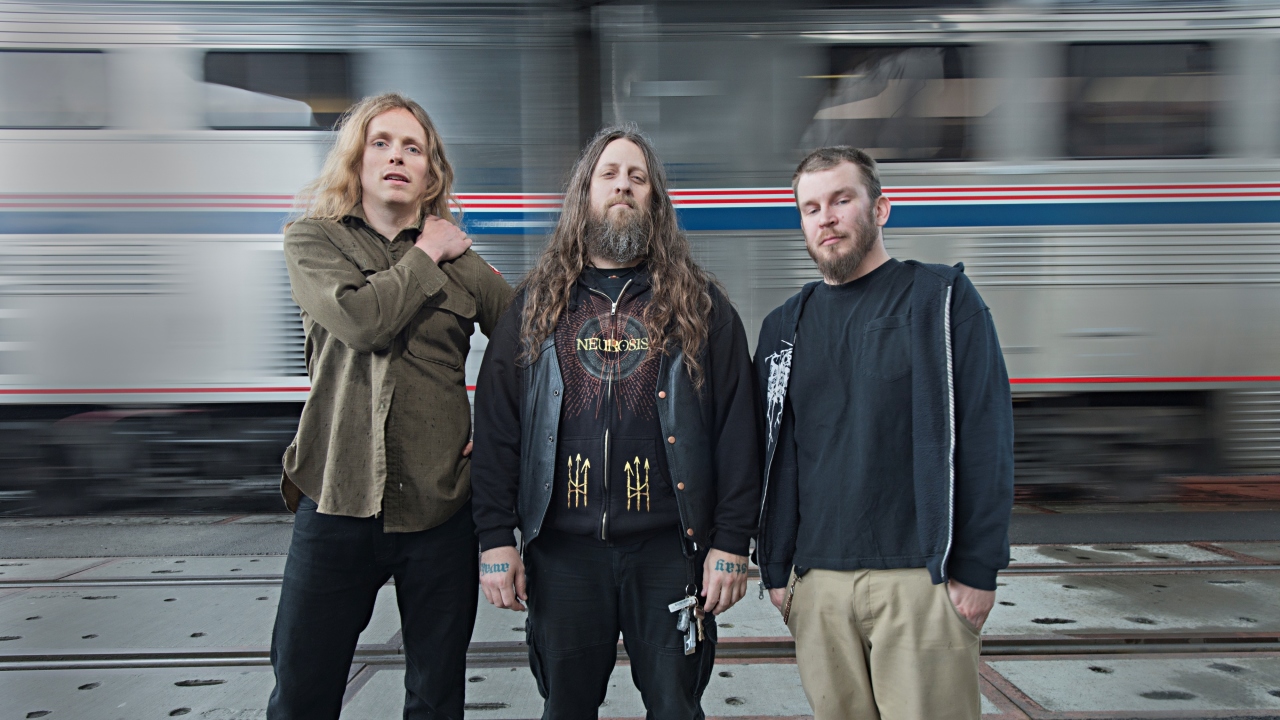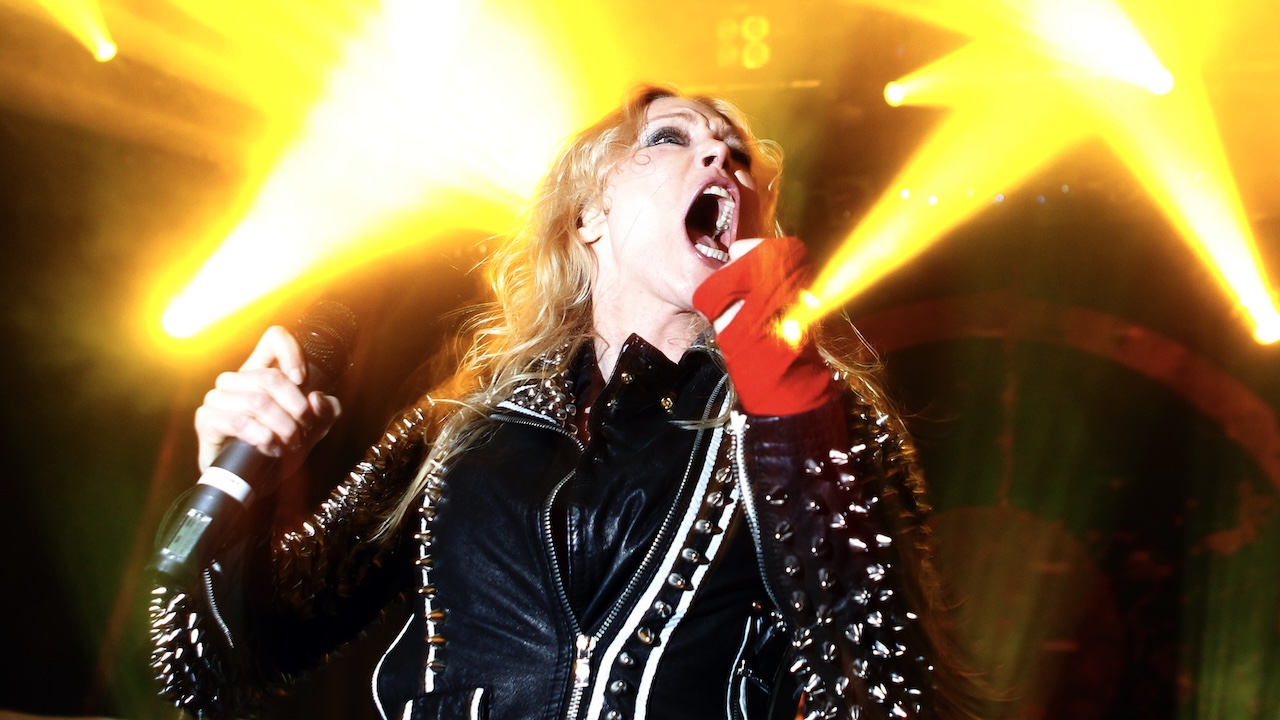Plane Sailing: The Doominess Of Yob
Yob’s difficult, demanding spiritual path has led them to become one of the most revered names in the doom community. Are they finally ready to see the light?

Select the newsletters you’d like to receive. Then, add your email to sign up.
You are now subscribed
Your newsletter sign-up was successful
Want to add more newsletters?

Every Friday
Louder
Louder’s weekly newsletter is jam-packed with the team’s personal highlights from the last seven days, including features, breaking news, reviews and tons of juicy exclusives from the world of alternative music.

Every Friday
Classic Rock
The Classic Rock newsletter is an essential read for the discerning rock fan. Every week we bring you the news, reviews and the very best features and interviews from our extensive archive. Written by rock fans for rock fans.

Every Friday
Metal Hammer
For the last four decades Metal Hammer has been the world’s greatest metal magazine. Created by metalheads for metalheads, ‘Hammer takes you behind the scenes, closer to the action, and nearer to the bands that you love the most.

Every Friday
Prog
The Prog newsletter brings you the very best of Prog Magazine and our website, every Friday. We'll deliver you the very latest news from the Prog universe, informative features and archive material from Prog’s impressive vault.
Doom: One word, four letters, and yet is there a more succinct genre label in all of music? Doom isn’t just a name, though. You don’t make doom, you live doom. In doom there is no light, no redemption, only irredeemable suffering and some vain hope of catharsis. Doom, in its most elemental form, was spawned from within the claustrophobic, factory-strewn heart of urban England, and for many it is still about dropping out of life with bong in hand.
“When things aren’t going well, it’s very easy to get pulled into the darkness all the way, and then to feed on that,” explains guitarist and chief songwriter Mike Scheidt down a crackling phone line from his home in the Pacific Northwest of the US. “There are people who feed on so-called ‘negativity’. But those are all just human ideas around energies. I’m the kind of person who likes to have ‘positive experiences’ with people, feelings of connections, feelings of cosmic high-fives and connecting on a level that goes beyond our daily lives.
“Any darkness that we touch,” Mike continues, “and swim in – and we do go there – it’s geared towards befriending the dark and integrating it rather than just being in negativity. There are bands I love who swim in that, so I’m not here to say what’s right or wrong for anybody because it’s pretty obvious that the line is blurred in life, from moment to moment. I just know what works for me.”
Formed in 1996, at a time when doom had almost been completely wiped from the musical consciousness by grunge and its kindred stoner rock scene, Yob have always operated in the more ethereal and tantric realms of doom. Releases like 2002’s Elaborations Of Carbon, and a year later its (recently reissued) follow-up, Catharsis, as well as their final album before a four-year hiatus, The Unreal Never Lived, showed a band owing as much to the devotional ragas of traditional Eastern music as they did the slow, meditative drones of Sleep and the head-nodding, riff worship of Saint Vitus.
During this enforced hiatus, Mike briefly formed the equally doomy Middian, only to disband that trio after one album, 2007’s Age Eternal, and lengthy legal wranglings over the use of their name. It wasn’t until Yob returned in 2009 with The Great Cessation – and with 2011’s Atma, particularly – that Mike’s spiritual inclinations were fully realised, albeit in abstract forms.
The Great Cessation took its name from a loose translation of Parinirvana, the ‘final nirvana’, and throughout Atma – the title this time referring to the Buddhist concept of the complete, spiritual self – Yob’s tantric excursions were filtered through the prism of Eastern belief systems such as Hinduism and the Buddhist Heart Sutra. However, the band’s new album, and first for Neurot Recordings, Clearing The Path To Ascend, is, as Mike explains, a far more personal and direct affair.
“I had a couple of years that were rough for me in a way that has led to better perspectives and better ways of living. I wanted to use the opportunity of things not being that great to get to a better spot, to understand why things weren’t that great to begin with,” Mike reveals. “It was a matter of looking inside and seeing what attitudes and behaviours in me were creating the situation that I was finding myself in. I mean, the album title is pretty plain. In the past we obviously used a lot more Eastern mysticism language, and I am still very much immersed in those ideas, although I think that my own personal path has led to the real truth of it and how those ideas can apply to my own real life. The title means looking at things in me that were actually self-sabotage or things that I needed to address so that I can be a better person to my family and friends, and the other things that were suffering during my dark period.”
Sign up below to get the latest from Metal Hammer, plus exclusive special offers, direct to your inbox!
As Mike explains, music’s transcendental power means that the experience of immersing himself within its soul-healing, dimension-hopping environment has enabled him to not only pull himself back from the dark, but lose himself entirely in the process. And it’s a process that he enjoys immensely.
“The best music transcends the idea that it’s even music to begin with,” he states, “and becomes a portal into that place and space where we get lost and all the hard lines start to blur; we’re no longer in such-and-such a place watching such-and-such a band, there are moments where all that disappears. That’s my favourite music experience: when I lose myself altogether. Whether that’s watching a band, or performing as part of a band, the best moments are when I’m not there.”
This is not, then, music that can simply ‘be played’. Extreme music, when it resonates, demands much more from its artists: dedication, honest reflection and, in the case of Yob, spiritual discipline, too. The result is that the band have become a cause celèbre, gaining the kind of rare, devoted following and reverence afforded to their label bosses, Neurosis. Their live shows have become meccas for seekers of sonic salvation, Tool brought them on tour and Atma even gained hugely favourable reviews in the New York Times.
“I think, on some level, we feel like we’re spectators, like we’re in a bubble, isolated from it,” says Mike of Yob’s popular ascendancy. “It’s certainly nothing that we deliberately hoped for. We never really had any ambition in as far as how far we were going to take the music; we just wrote music, dug into ourselves and tried to make it as authentic as possible inside our practice space. And, if we did that, then we knew that we could go out there and play, and that it might resonate and that somebody out there might really feel the music. So to have it be something that’s grown… I mean, we almost don’t feel like we can take any credit for it at all. We’ve had opportunities and we weigh up each one and decide if it’s in keeping with who we are and what we want to do, and what energies we want to be a part of. The rest of it really has nothing to do with us at all; music has a life of its own and it does what it does – it’s allowed us to have opportunities that we wouldn’t otherwise have had, but that’s really down to those people out there making those things happen.”
For Mike, Yob has become a means of survival, in a spiritual sense if not a material one: “We’re very, very far from rock star status,” he explains. “All that stuff is very satisfying artistically, but month to month I’m barely making ends meet. But, y’know, it’s not separate, it’s what I have to do. So, I do it all the way and I give it my life.
“To me they’re not separate entities,” he concludes on the relationship between Mike Scheidt, Yob leader, Mike Scheidt, human being and the spiritual cycle that binds the two. “The band for me, and my part in it, is part of my personal path and part of my life, that then becomes part of the band, that becomes part of my life that then becomes part of the band, and so on. There is no split for me, at any given moment, year in and year out; to me, they’re part of the same thing.”
SPIRITUAL HEALING
_Three more doom heavyweights who go deeper than the riff. _
OM
The premier purveyors of what has variously been labelled ‘tantric doom’ and ‘kabbalah doom’, the Oakland, California-based core duo of Sleep bassist Al Cisneros and Grails drummer Emil Amos create lengthy meditative collisions of Sabbath-ian doom riffs and traditional Eastern music that thematically touches on everything from Islam to Christianity and Judaism, to Hinduism, Buddhism and Sufism. ‘Follow the weed priests’ indeed.
TAURUS
Aurally abrasive, mentally upsetting power duo comprised of Dark Castle’s Stevie Floyd and ex-Purple Rhinestone Eagle Ashley Spungin, Taurus create the sort of unsettling sonic maelstrom that lies somewhere between the Melvins, Sunn O))) and Whitehouse. Yet the pair suffuse this with philosophically charged ruminations on Eastern mysticism and the nature of reality and human consciousness, particularly throughout their current album, No/Thing.
SCOTT ‘WINO’ WEINRICH
Known best for the bleak, drug-sewer doom of Saint Vitus, through the recently reactivated Spirit Caravan, Weinrich (right) has once again a vehicle to express his often less revelled spiritual side. “I believe God is in all of us already,” he has stated in the past, and it’s through the ’Van – and ingesting an unhealthy amount of peyote – that he highlights it.
Clearing The Path To Ascend is out now via Neurot.
